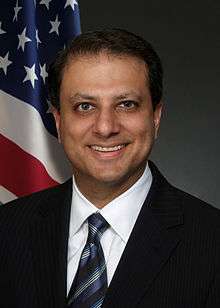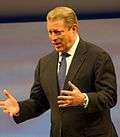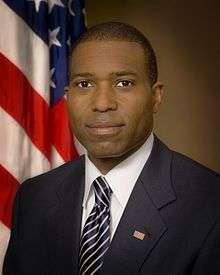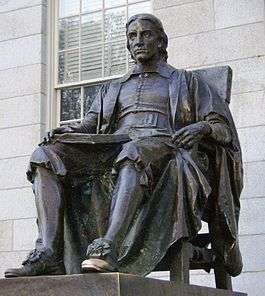Harvard Political Review
| Categories | Politics, social issues, culture |
|---|---|
| Frequency | 4 per year |
| Founder | Al Gore[1] |
| Year founded | 1969 |
| First issue | April 10, 1969 |
| Based in | Cambridge, Massachusetts |
| Language | English |
| Website | www.harvardpolitics.com |
| ISSN | 0090-1032 |
| OCLC number | 1784689 |
The Harvard Political Review is a quarterly, nonpartisan American magazine and website on politics and public policy founded in 1969 at Harvard University in Cambridge, Massachusetts. It covers both domestic and international affairs and political events, as well as political discourse at Harvard. It also conducts interviews with political figures and experts. It is a publication of the Harvard Institute of Politics,[2] and is written, edited and managed entirely by Harvard undergraduates, and accepts submissions from all students at Harvard College "regardless of concentration, experience, or political leaning."[3]
History
Founding
The magazine was founded in 1969 by a group of Harvard undergraduates, including Al Gore,[1] as a publication that allowed students to research, write, and edit political commentary in a thoughtful, non-partisan forum. To this day, the HPR does not take magazine-wide editorial positions. While individual articles have distinct viewpoints, the magazine as a whole does not represent any ideology or party.
The magazine was formed during the era of student protests in the late 1960s, and witnessed several leadership and format changes in its first few years of existence.[4] At times it has had to fight for its editorial independence.[5] In recent years, HPR writers have won the National Press Club Award for Outstanding College Political Writing.
Today
Today it is written, edited, and managed entirely by undergraduates at Harvard. The Harvard Political Review also operates a daily website.[6]
The magazine is known for its in-depth interviews with prominent political figures. In addition to interviews, book reviews, humor pieces, and general coverage of domestic and world affairs, each issue features a number of articles organized around a central theme or topic.
Since the fall of 2010, the magazine has published an annual report on the U.S. federal budget.[7] Its editors have been featured on Fox News[8] and the Huffington Post.[9][10]
Notable alumni
-

Jonathan Alter, Bloomberg View columnist
-
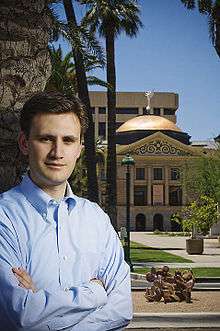
Andrei Cherny, former White House speechwriter
-
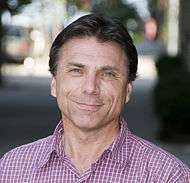
Nelson Antonio Denis, former New York State Assemblyman, journalist and film director
-
E. J. Dionne, Washington Post columnist
-

Dani Rodrik, Institute for Advanced Study professor[2]
-
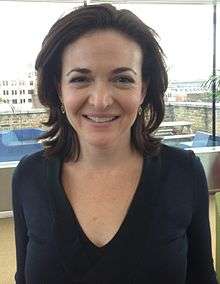
Sheryl Sandberg, COO of Facebook
Other notable HPR alumni include:
- Linda Bilmes, Daniel Patrick Moynihan Senior Lecturer in Public Policy at Harvard University[11]
- Alexander Burns, Politico reporter
- Glenn Hutchins, Co-founder of Silver Lake Partners[12]
- Lawrence H. White, Economics Professor at George Mason University[13]
- Andrew S. Effron, former Chief Judge of the United States Court of Appeals for the Armed Forces (CAAF)
- Jeff Glueck, CEO of Foursquare
References
- 1 2 "Magnetic Fields". Spin. August 2006. Retrieved 2011-10-26.
- ↑ Harvard University Institute of Politics - Harvard Political Review
- ↑ "Harvard Political Review." Harvard Institute for Politics
- ↑ Blanton, Tom. "Bullish Ideas in a Bear Market." The Harvard Crimson, Feb. 20, 1976.
- ↑ Kaplen, Alexander. "Political Review Should Be Independent." The Harvard Crimson, Feb. 26, 1986.
- ↑ website
- ↑ Annual Report of the United States of America
- ↑ Fox News. "Challenges of the U.S. Economy." Nov. 6, 2010.
- ↑ Barr, Sam. "What's So Wrong With Simpson-Bowles?" Huffington Post. Nov. 23, 2010.
- ↑ Danello, Chris. "What Truman Can Teach Obama About the Deficit." Huffington Post. Dec. 2, 2010.
- ↑ "Advocate, Review Staffs Elect Women Presidents" The Harvard Crimson. Dec. 4, 1978.
- ↑ Harvard Political Review. Winter 1976.
- ↑ Cox, Janice. "Adams Resident Wins Capitalism Prize" The Harvard Crimson. Aug. 13, 1976.
